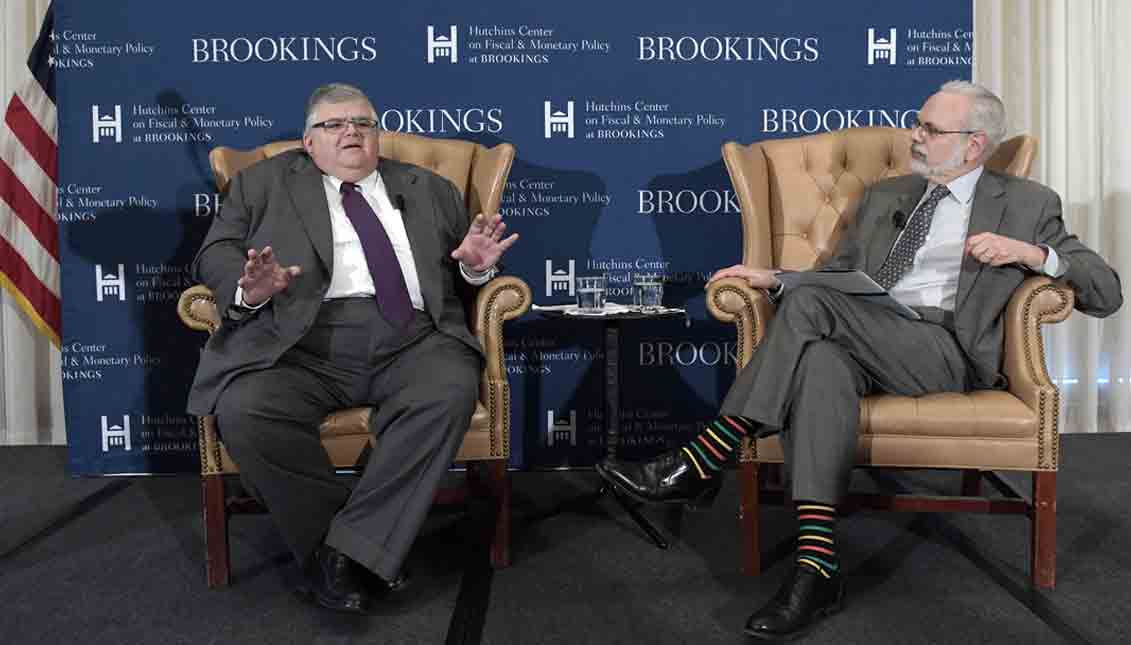
[OP-ED]: Who loves free trade? We do -- sometimes
Everyone “knows” that Americans have soured on free trade and globalization, as President Trump keeps saying.
But don’t tell the folks at Gallup. They’ve asked the same survey question since 1993: Do people see trade as an “opportunity” or as a “threat”? The latest poll, conducted in February, found that 72 percent see trade as an “opportunity” and only 23 percent fear it as a “threat” -- the widest margin since the question was first asked.
It’s not easy to reconcile these contrasting polls. The truth is that politicians, scholars, and (yes) even journalists often play fast and loose with statistics. They selectively choose the ones that support their point of view. Opinions on trade and globalization are an instructive case in point.
If you look carefully, you can find surveys that will confirm almost any point of view. The variations often reflect how survey questions are worded. References to lost “jobs” elicit hostile views on trade, while mentions of just plain “trade” generate more favorable responses.
Consider. One Pew question asks respondents how important various foreign policy goals should be. In two surveys, 1993 and 2013, more than 80 percent of Americans said that “protecting the jobs of American workers” should be a top foreign policy objective. This implies lukewarm support for free trade. By contrast, respondents to another Pew survey in 2014 were asked to judge the proposed Trans-Pacific Partnership trade pact: 55 percent thought it “good” compared with 25 percent who rated it “bad.” This implies strong support for trade.
RELATED CONTENT
These statistics come from an informative study -- “The Polls and Politics of Trade” -- by Karlyn Bowman and Heather Sims of the American Enterprise Institute, a think tank. Their basic conclusion is that Americans “have clear (and contradictory) views about trade.” Americans may be illogical and over-optimistic. They may think they can capture foreign markets while, somehow, foreign importers won’t capture U.S. markets.
Volatile attitudes toward trade have other causes. One is the health of the broader economy. When it’s weak or in recession, support for trade ebbs. Presumably, Americans blame imports for some domestic problems. In 2008, when the Great Recession was at its worst, just over 40 percent of Americans saw trade as an “opportunity” (that’s the same poll that now finds that 72 percent of Americans do). Other polls show a similar pro-trade bounce from the economy’s recovery.
All in all, Americans seem to favor engaging the world economy and to reject protectionism. But the conviction is weak and subject to numerous qualifications. Americans’ attitudes on trade seem confusing, inconsistent and variable because they are confusing, inconsistent and variable. As Republicans and Democrats strive to accommodate the clashing views, they amplify the confusion.
Don’t be fooled: There is no strong consensus on trade. Perhaps the wisest commentary comes from Timothy Taylor on his The Conversable Economist blog. Public polls, he writes, suggest that “U.S. opinions about trade are just not very deeply rooted, and are more expressions of transient emotions and political partisanship.” Almost everyone favors putting “America first.” The real question is what does that mean in practice.










LEAVE A COMMENT:
Join the discussion! Leave a comment.